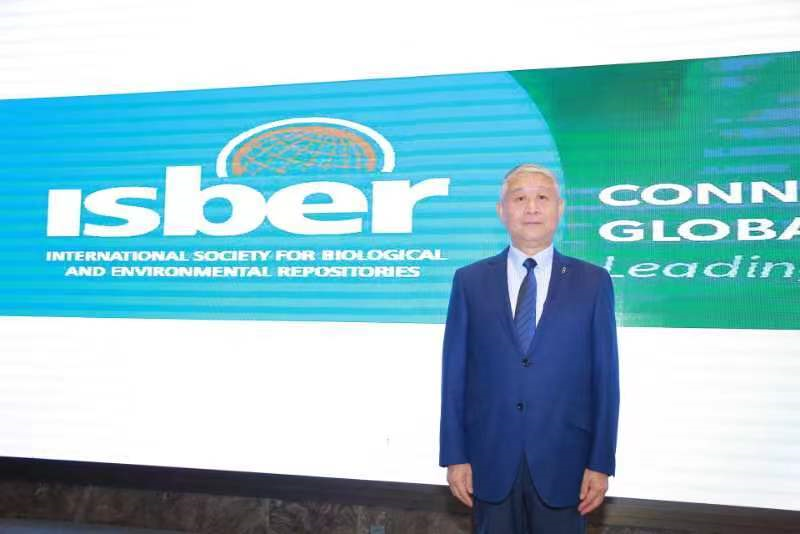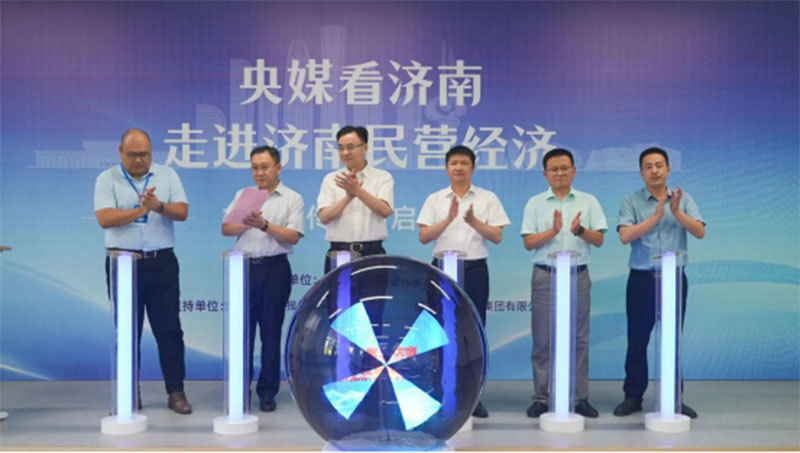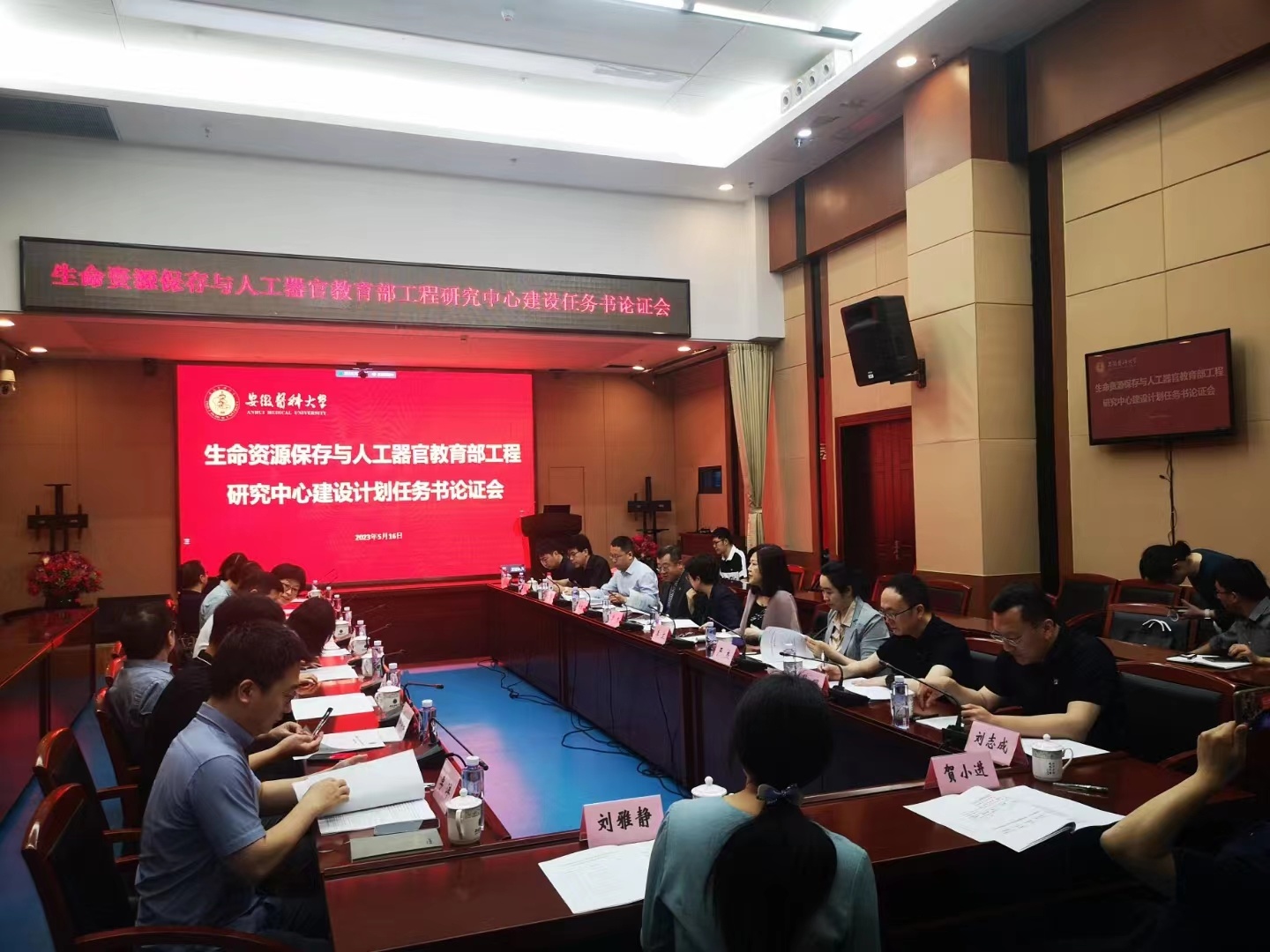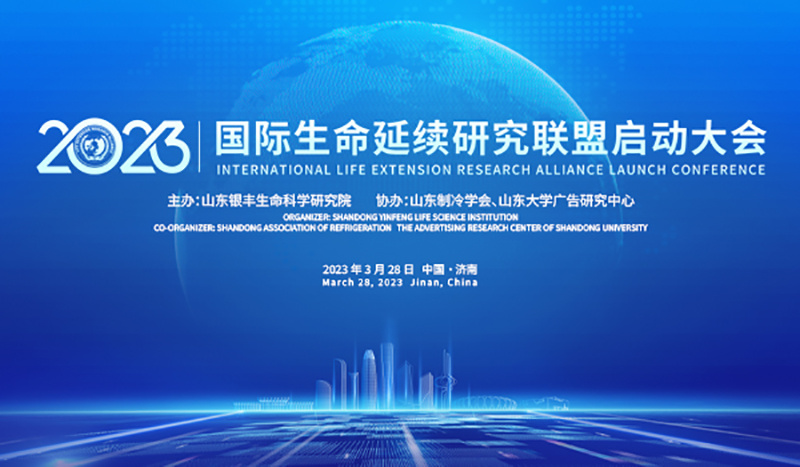Another big guy joins! The ultimate pursuit of many entrepreneurs is this
Release time:
2021-10-27
On October 20, 2021, the Cryogenic Medicine Research Center of Shandong Yinfeng Life Sciences Research Institute (the research unit of our foundation) welcomed the Yinfeng second-generation upgraded high-precision, long-span, and large-scale programmed cooling instrument. The overall appearance of this equipment , the operation interface, the spatial layout of the temperature monitoring sensor, and the traveling mode of the liquid nitrogen steam vortex have all been optimized and upgraded. It is the third device in the world that can continuously cool down from room temperature to below -190°C. Previously, the third Two cooling devices have been exported to Southern Cryonics, an Australian cryonics institution.
Recently, Wang Xiaochuan issued an internal email announcing his resignation as Sogou CEO. Regarding his future direction, Wang Xiaochuan revealed to the media, "In the next twenty years, I hope to contribute to the development of life sciences and medicine."
This is the third Internet tycoon to resign and join the life sciences field this year. In May, Zhang Yiming announced that he would step down as CEO of ByteDance and become more involved in the exploration of "brain disease" and other projects; in September, Huang Zheng, who had just resigned as chairman of Pinduoduo, donated US$100 million to establish the Stars Science Fund, and also plans to do Research in life sciences and video science.
Previously, Chen Tianqiao spent more than 1 billion US dollars to explore brain science. Later, Robin Li founded Baitu Biotechnology, and Zhang Yiming recruited medical and biological talents from three places around the world. Internet tycoons such as Ma Huateng, Jack Ma, and Fu Sheng are all obsessed with biology and committed practitioners.
Life science, this unopened door to the origin of life, why is it so magical?
Tech geeks
The ultimate goal: achieve personal, digital or organizational "immortality"
"In the next twenty years, if I can contribute to the development of life sciences and medicine and make some contribution to public health, life will be more meaningful." After resigning, Wang Xiaochuan focused on life sciences. But this is no coincidence.
In 2016, Sogou launched Sogou Famous Doctors, aiming to build a medical science popularization and diagnosis platform through AI technology. In 2018, Wang Xiaochuan participated in the Two Sessions as a member of the National Committee of the Chinese People's Political Consultative Conference and submitted medical-related proposals. Two health consulting and medical device sales companies were established in March and July this year.
Besides Wang Xiaochuan, Musk is also very enthusiastic about life sciences.
In 2016, Musk founded Neuralink, a brain-computer interface company. Neuralink first caused a stir in August 2020, when three releases were shown in a live video: brain-computer interface device LINK V0.9, surgical robots, and biological experiments on brain-computer interfaces. In February this year, Neuralink released a video of a 9-year-old macaque controlling a table tennis game with his thoughts.
Zuckerberg, who has been secretly competing with Musk on such a geeky thing as brain-computer interface, naturally did not miss it.
As early as 2013, Zuckerberg teamed up with Google co-founder Sergey Brin and his wife to create the "Life Science Breakthrough Prize" foundation, which provides winners with US$3 million as rewards every year. This is currently The world's most valuable scientific award.
The purpose of the foundation is to reward and fund researchers who are engaged in research to extend human life, mainly including scientists engaged in research to combat cancer, diabetes, Parkinson's and other diseases.
Unlike Musk who chose an invasive brain-computer interface, Zuckerberg chose a non-invasive one, integrating brain-computer interface and VR technology to create a machine that can freely shuttle between the real and virtual worlds. He believes that the ultimate form of brain-computer interface is to achieve digital immortality. To put it simply, with the help of this technology, human brain information can be extracted, stored in a chip, and then implanted into a new body. The body will die but the thoughts will last forever.
Seeking medical advice
Suffering from illness, he embarked on the road to explore life and the brain.
Chen Tianqiao suffered from panic disorder. During an attack, he could not even breathe. This kind of torture became one of the reasons why Chen Tianqiao later entered the field of brain science.
He founded Shanda in 1999 and became a billionaire at the age of 30. In 2017, after years of retirement, he returned to the public eye with brain science. It is understood that Chen Tianqiao donated US$115 million to the California Institute of Technology (CIT) for brain research and the construction of the Chen Institute (Chen Institute), dedicated to promoting scientists' research in the field of the human brain.
There are not a few entrepreneurs who start from diseases and try to study the brain and life. Sohu Chairman Zhang Chaoyang, Innovation Works founder Kai-fu Lee, and Google founder Larry Page have all had this experience of "seeking medical advice."
Larry Page experienced two severe colds before and after. Due to the virus, he suffered bilateral vocal cord paralysis. In 2013, Calico's company came into being, focusing on life science research on "happiness, health and longevity" with an initial investment of US$1.5 billion. Its ultimate goal is to crack the causes of human aging and develop an "elixir of immortality" that extends human life.
Business explorer
Trying to put the "life science" dream into business territory
On May 20 this year, Zhang Yiming announced that he would step down as CEO of Byte and step out of daily management to "create more possibilities for the company," which includes life sciences. He said that the impact of virtual reality, life sciences, and scientific computing on human life has begun to dawn.
According to statistics from the "Health Bureau", from May 2020 to September 2021, ByteDance has 9 investment projects in the medical field, covering health science popularization, medical services in various fields, medical big data and other aspects.
There is certainly more than just interest behind the high focus on life sciences.
As early as 2019, the number of reads of health information on the Toutiao platform reached 54 billion, and "doctor" became the most watched hot word and group in the health field on Toutiao with 5.55 billion reads.
Zhang Yiming is not the only one who wants to seize this technological wave.
In an exclusive interview in 2018, a reporter asked Huang Zheng: Besides Pinduoduo, what do you want to do most? Huang Zheng replied: "I hope to transform into a real scientific researcher in the future." Previously, Huang Zheng announced that he and the founding team would jointly donate 2.37% of Pinduoduo shares to establish the "Stars Charity Fund". The first phase of funding will be in Donate US$100 million to the Zhejiang University Education Foundation in the next 3-5 years to promote scientific research in biomedicine, agriculture and food.
What is little known is that in 2015, Robin Li, Lenovo Group CEO Yang Yuanqing, ZhenFund founder Xu Xiaoping, Peking University professor Rao Yi and several other scientists and entrepreneurs organized and founded the Future Forum. In 2016, the Future Science Award was officially announced, with three major awards: "Life Science", "Physical Science", and "Mathematics and Computer Science Award", with a single prize of US$1 million.
Zhang Lei, founder of Hillhouse Capital, was also one of the earlier entrepreneurs to pay attention to life sciences.
Zhang Lei once said that Hillhouse entered the industry probably in 2012, and bluntly stated that “life sciences are expected to usher in the ‘Cambrian Explosion’.” To date, it has invested in more than 160 pharmaceutical companies, with a total investment amount of more than 120 billion yuan.
Li Ka-shing, Hong Kong’s richest man, expanded his business into the life sciences field earlier. Since 2001, he began to invest in traditional Chinese medicine and Western medicine. In 2017, he entered cutting-edge life science technology and invested US$20 million in ChromaDex (a company specializing in anti-aging preparations, similar to domestically produced Ai Mu Yin, etc.), and also sponsored gene therapy. Research on editing technology.
In addition, Amazon founder Bezos is obsessed with anti-aging. In September, he recently invested in a start-up company called Altos Labs, which is dedicated to researching how to reverse the aging process. In 2018, it invested in Unity Technologies, a biotech company working on anti-aging therapies.
The study of the brain or life is a very special field. The unimaginable heavy investment in the early stage will take up to 10 or even 20 years or even longer. We hope and believe that the tree of life sciences will eventually bloom.
Previous article
Latest developments
On August 23, the Jinan Private Economic Development Bureau and China Economic Weekly jointly launched the theme publicity activity of "Central Media Look at Jinan - Entering Jinan's Private Economy" in Yinfeng Biotechnology Park.
Led by Anhui Medical University and participated by Yinfeng Cryogenic Medical Technology Co., Ltd., the "Engineering Research Center for Life Resources Conservation and Artificial Organs of the Ministry of Education" was officially accepted and awarded by the Ministry of Education. As one of the four major platforms for the transformation of the center's project, Yinfeng Cryogenic Co., Ltd. is responsible for the "development, promotion and application of cryogenic preservation technology of biological matrix materials".
On March 28, 2023, the kick-off meeting of the International Alliance for Life Extension Research was held in Jinan, Shandong. The "International Alliance for Life Extension Research" was initiated by Shandong Yinfeng Life Science Research Institute, and jointly established by 13 international scientific research institutions engaged in the field of cryogenic biomedicine from North America, Europe, Oceania, etc., and appeared at the conference through online and offline forms.











